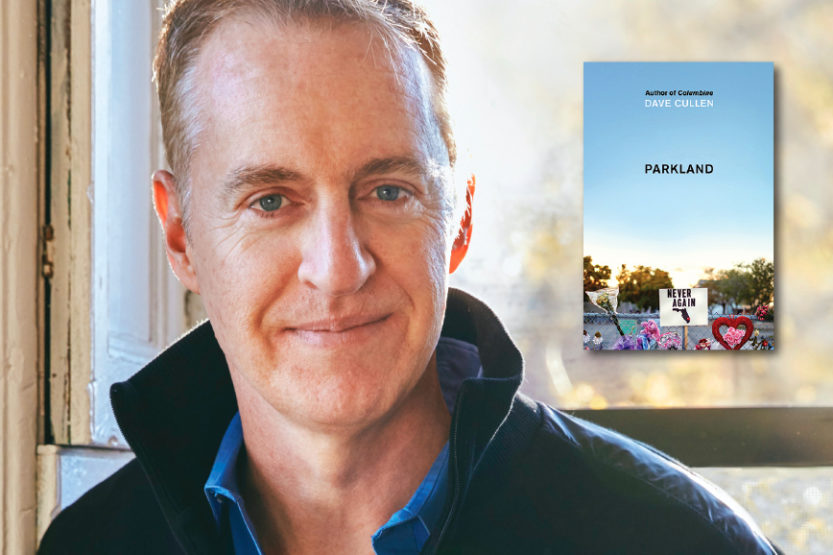Chosen
 “In 20 years, we may say Parkland was where the anti-gun-violence movement found a voice,” says author Dave Cullen. (Image by Justin Bishop; Book courtesy of HaperCollins)
“In 20 years, we may say Parkland was where the anti-gun-violence movement found a voice,” says author Dave Cullen. (Image by Justin Bishop; Book courtesy of HaperCollins) Columbine author Dave Cullen examines student reaction to Parkland
Two decades ago, Dave Cullen, ’86 LAS, was one of the first outsiders to arrive at Columbine High School, Littleton, Colo., on the day of the infamous shootings. His detailed reportage resulted in Columbine, a bestselling, definitive account. His expertise with the disturbing phenomenon of school shootings led him to Marjory Stoneman Douglas High School, Parkland, Fla. His new book, Parkland: The Birth of a Movement (HarperCollins), is less about the murder of 17 people than about the anti-gun movement the young survivors created.
What is unique about Parkland?
The survivors. Literally, within hours of the killings, these kids were formulating a response. They were on television; they were on social media. They were able to act while the emotions of the moment were white-hot.
Why is that?
They were media-savvy, that’s for sure; but one reason this is different from Columbine is that these kids expected this could happen. Today’s younger generation keeps seeing it happen in schools. And they’re angry that the system isn’t reacting.
Can this movement really make a difference?
Change won’t come overnight, and the opposition is powerful. Polls show that the vast majority of voters support increased gun-safety measures, such as more thorough background checks. In 20 years, we may say Parkland was where the anti-gun-violence movement found a voice, and politicians found a backbone.
Why do these shootings keep happening in America?
Teen depression, the availability of guns and the media. Killers crave attention, and just by doing its job, the media provides it. The media has to find a way to cover these spectacle killings without focusing attention on the perpetrators. I’ve done that in Parkland; the killer’s name never appears.
Why are you drawn to this subject?
There’s an old saying, “You don’t choose the topic; the topic chooses you.” Months after Columbine, I covered a minor event at the school. A fellow reporter was surprised I went. “You’ve got to pull the needle out,” he said. And I thought, “No, I’ve got to push the needle in.” America is wrestling with its relationship to violence—I don’t want to miss a moment.

